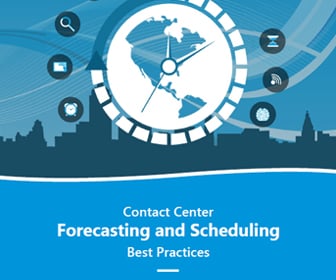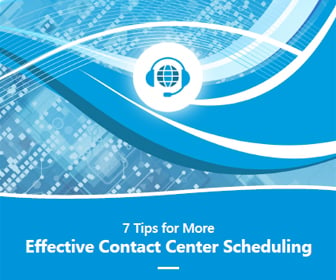Workforce Management Featured Article
If You Want to Please Customers, You Should Be Empowering Agents
Let’s face it: the traditional image of the contact center doesn’t exactly bring to mind ideas of empowered workers. Contact center workers are often poorly paid, poorly trained, and back out the door again before the manager can finish the training. Some contact centers experience turnover of 100 percent or more each year. For this reason, many companies don’t really value their call center workers. But it’s a bit of a Catch-22: how can workers who aren’t valued by their employers ever be anything more than a transient warm body in a seat? If you don’t respect, empower and value contact center workers, what possible reason do they have to give more than the bare minimum?
One thing is certain: treating call center workers poorly is a bad business strategy. These people are the faces and voices of your organization with customers. Just as every chain is only as strong as its weakest link, every company is only as high-quality as its most apathetic customer support worker. In companies famed for their customer experience – think Zappos, or L.L. Bean – customer support workers are empowered to go above and beyond to please customers. Rigid scripting, unbreakable rules and a pyramid-shaped hierarchy aren’t going to help contact centers (even the good ones) impress customers. The result is a lukewarm customer experience at best.
In a recent blog post, Monet Software (News - Alert) CEO Chuck Ciarlo blogged that in every industry, the goal should be satisfied customers.
“Getting there involves creating a set of guidelines for employees to follow intended to achieve that goal,” wrote Ciarlo. “It also means that sometimes employees should be able to break those rules and go above and beyond to make a customer happy, even if it doesn’t always conform to company policy.”
Empowered agents are those who can use their judgement to please customers, and who are encouraged to apply empathy to each interaction. Agents who always have autocratic managers breathing down their necks to keep average handle time (AHT) low can’t engage in empathy or customer-pleasing gestures.
“Sometimes even smaller exceptions are not greeted warmly by supervisors,” wrote Ciarlo. “There are contact center environments where rules are enforced with military precision, and these are not the most comfortable places for agents to work. Rules are necessary, but the key to building a successful team of agents is to provide not just training, but confidence; not just correction, but encouragement; not just guidance, but support.”
Empowering agents will mean going off the script, and trust agents to use their judgement. (Yes, this may mean you’ll have to pay a bit more for better experienced agents, and boost your training.) Is the customer clearly getting ready to churn? Allow the agent to offer a discount. Has the customer been frustrate by shipping mix-ups? Let the agent decide to waive the costs of shipping or returns. Is the customer stressed and having a rotten day? Let the agent take a little more time and make a little small talk with this customer so he or she doesn’t feel rushed.
Ciarlo recommends that companies consider the GROW method. GROW is an acronym for Goal, Reality, Options and Will, and refers to a coaching process that has proven successful at improving agent performance and encouraging agents to solve problems through their own creativity. It’s a way of clearly defining the goals in agent coaching sessions, clearing the roadblocks to those goals and putting the agent on an active path to achieving the goals. By using mistakes as teaching moments and correcting mishaps in a non-punitive way, companies can build better agents who, in turn, stick around long enough to help build better customers.
Edited by Stefania Viscusi







